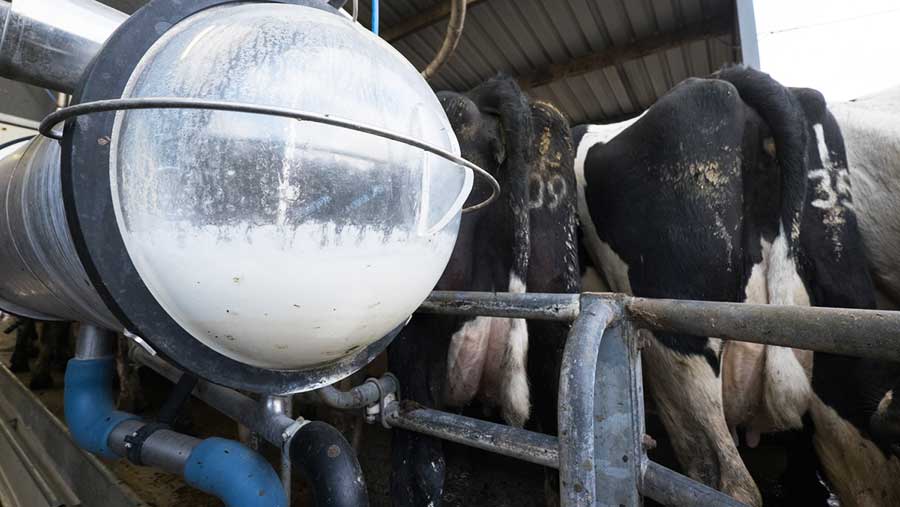EU ramps up emergency dairy intervention
 © Tim Scrivener
© Tim Scrivener The EU has stretched its emergency buying plan to support milk prices even further.
Farm commissioner Phil Hogan confirmed on Thursday (27 May) he would increase for the second time how much skim milk powder can be bought up at intervention prices.
The ceiling has been raised to 350,000t, up from the 218,000t limit, which had been hit earlier this week. The commission already doubled this year’s original ceiling of 109,000t in April.
Intervention buying is one of the EU’s last two dairy market tools, which act as a safety net when commodity prices crash. Butter and skim milk powder are bought into public stocks at a fixed rate.
See also: World dairy giant reveals depressing milk price forecast
The other option is private storage aid, where processors are paid to keep products in store for several months.
Both tactics try to reduce dairy supplies during a glut.
Speaking to MEPs, Mr Hogan said he had now used all the options in his toolkit. That included the activation of article 222, which lets farmer groups work together to cut production.
He said private storage aid and intervention had covered 2.8m tonnes of dairy products last year, when EU production had risen by 3.5m tonnes.
Ireland’s farming minister Michael Creed welcomed Mr Hogan’s announcement.
“Intervention is a key EU support tool for dairy markets and is badly needed in this extended period of downward price volatility in the dairy sector,” he said.
Financial incentives
Mansel Raymond, milk working party chairman at Copa & Cogeca, said the commission should take more action to help farmers in the short term, but did not call for specific measures.
He said individual governments should use their full share of the €420m aid package and producer organisations should encourage farmers to take advantage of article 222, by using financial incentives.
“Whilst in the long term prospects are promising, with global demand expected to rise by 2% annually, the short-term situation remains extremely difficult,” Mr Raymond said. “Actions are consequently needed to address the short-term problems to ensure its profitable in the future.”
There are still questions about how effective private storage and intervention are in the long run.
Analysis by AHDB Dairy shows the three countries who have produced most milk are not the ones with most product in storage. Netherlands, Germany and Ireland combined have only put 16% of their extra milk production from 2016 in store. But Belgium has put 86% in and France 68%.
“The challenge for the EU commission is whether there is a better way to support the market than the current intervention system,” the levy board said. “[That is] support that encourages and rewards those who are driving a controlled expansion plan, alongside a clear and achievable sales and marketing plan.”
